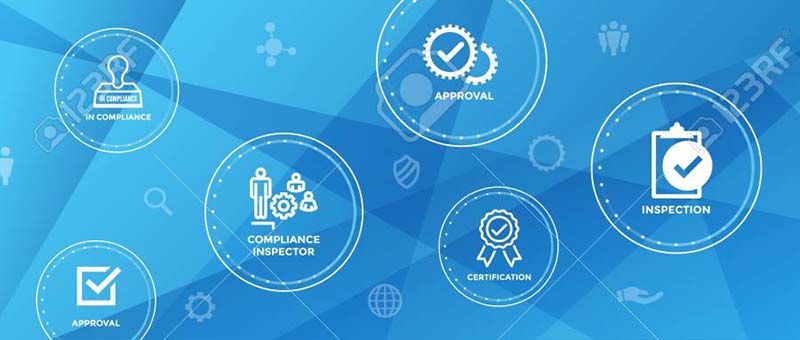
Understanding Regulatory Compliance for SMBs
Small and medium-sized businesses (SMBs) operate in a complex regulatory environment where adherence to various laws and regulations is essential. Understanding regulatory compliance is crucial for SMBs to avoid legal issues, financial penalties, and reputational damage.
Regulatory compliance refers to the process of ensuring that a business follows all applicable laws, regulations, and standards that govern its operations. These regulations can vary depending on the industry, location, and nature of the business. Compliance requirements may cover areas such as data privacy, cybersecurity, employee safety, financial reporting, and environmental protection.
Complying with regulations can be challenging for SMBs due to limited resources, lack of expertise, and the constantly evolving nature of regulatory requirements. However, it is crucial for SMBs to prioritize compliance to protect their business and build trust with customers and stakeholders.
By understanding regulatory compliance requirements specific to their industry and jurisdiction, SMBs can take proactive steps to ensure compliance and mitigate risks. This includes staying updated on changes in regulations, implementing robust compliance processes, and seeking professional advice when needed.
Common Challenges Faced by SMBs in Meeting Compliance
SMBs often face unique challenges when it comes to meeting compliance requirements. Some common challenges include:
– Limited Resources: SMBs typically have limited financial and human resources to allocate towards compliance efforts. This can make it difficult to implement comprehensive compliance programs and hire dedicated compliance personnel.
– Lack of Expertise: SMBs may not have in-house expertise in understanding and interpreting complex regulations. This can result in misinterpretation or non-compliance unintentionally.
– Changing Regulations: Regulatory requirements are constantly evolving, and SMBs may struggle to keep up with the latest changes. This can lead to non-compliance if businesses are not proactive in staying updated.
– Compliance Fatigue: SMBs may experience compliance fatigue, especially if they have to comply with multiple regulations. This can lead to a lack of motivation and a higher risk of non-compliance.
Despite these challenges, SMBs can overcome them by adopting practical strategies and leveraging available resources to ensure compliance.

Strategies for Ensuring Compliance with Regulations
To ensure compliance with regulations, SMBs can consider the following strategies:
– Conduct a Compliance Assessment: Start by assessing the current state of compliance within the organization. Identify any gaps or areas of improvement that need to be addressed.
– Develop a Compliance Program: Establish a comprehensive compliance program that includes policies, procedures, and controls to ensure adherence to regulations. This program should be tailored to the specific needs and risks of the business.
– Employee Training and Awareness: Provide regular training to employees on compliance requirements and best practices. This will help create a culture of compliance and ensure that employees are aware of their responsibilities.
– Regular Compliance Audits: Conduct regular audits to assess compliance effectiveness and identify any non-compliance issues. This will help in detecting and addressing potential risks before they escalate.
– Stay Updated on Regulatory Changes: Keep track of changes in regulations that are relevant to the business. Subscribe to industry newsletters, attend seminars, and engage with regulatory authorities to stay informed.
– Seek Professional Advice: If needed, consult with legal and compliance professionals who can provide guidance on specific compliance requirements and help navigate complex regulations.
By implementing these strategies, SMBs can establish a strong compliance framework and minimize the risk of non-compliance.
Importance of Regular Compliance Audits and Updates
Regular compliance audits and updates play a crucial role in ensuring ongoing compliance for SMBs. Here’s why they are important:
– Identify Non-Compliance Issues: Compliance audits help identify any non-compliance issues within the organization. By conducting regular audits, SMBs can proactively detect and address areas of non-compliance before they lead to legal or financial consequences.
– Ensure Effectiveness of Compliance Measures: Compliance audits assess the effectiveness of existing compliance measures and controls. This helps in identifying gaps or weaknesses in the compliance program and implementing necessary improvements.
– Stay Updated on Changing Regulations: Compliance audits provide an opportunity to review and update compliance processes in light of any regulatory changes. This ensures that SMBs stay current with the evolving regulatory landscape.
– Demonstrate Commitment to Compliance: Regular compliance audits demonstrate a commitment to compliance and can enhance the reputation of SMBs. It sends a message to stakeholders that the business takes compliance seriously and is proactive in meeting regulatory requirements.
By conducting regular compliance audits and staying updated on regulatory changes, SMBs can maintain a strong compliance posture and minimize the risk of non-compliance.
Tools and Resources to Simplify Compliance Processes
Several tools and resources are available to help SMBs simplify their compliance processes. These include:
– Compliance Management Software: Specialized software solutions are designed to streamline compliance processes, automate tasks, and centralize compliance data. These tools can help SMBs effectively manage their compliance efforts.
– Regulatory Alert Services: Subscription-based services provide regular updates on regulatory changes that are relevant to a specific industry or jurisdiction. These services help SMBs stay informed about the latest compliance requirements.
– Industry Associations and Networks: Joining industry associations and networks can provide SMBs with access to resources, best practices, and guidance on compliance matters. These platforms enable SMBs to learn from peers and stay updated on industry-specific compliance issues.
– Professional Consultants: Engaging with professional consultants who specialize in compliance can provide SMBs with expert guidance and support. These consultants can help businesses navigate complex regulations and develop tailored compliance strategies.
By leveraging these tools and resources, SMBs can simplify their compliance processes, save time and effort, and ensure they are meeting their regulatory obligations.
To find out how M-Squared Networks can help your business, please contact us!
